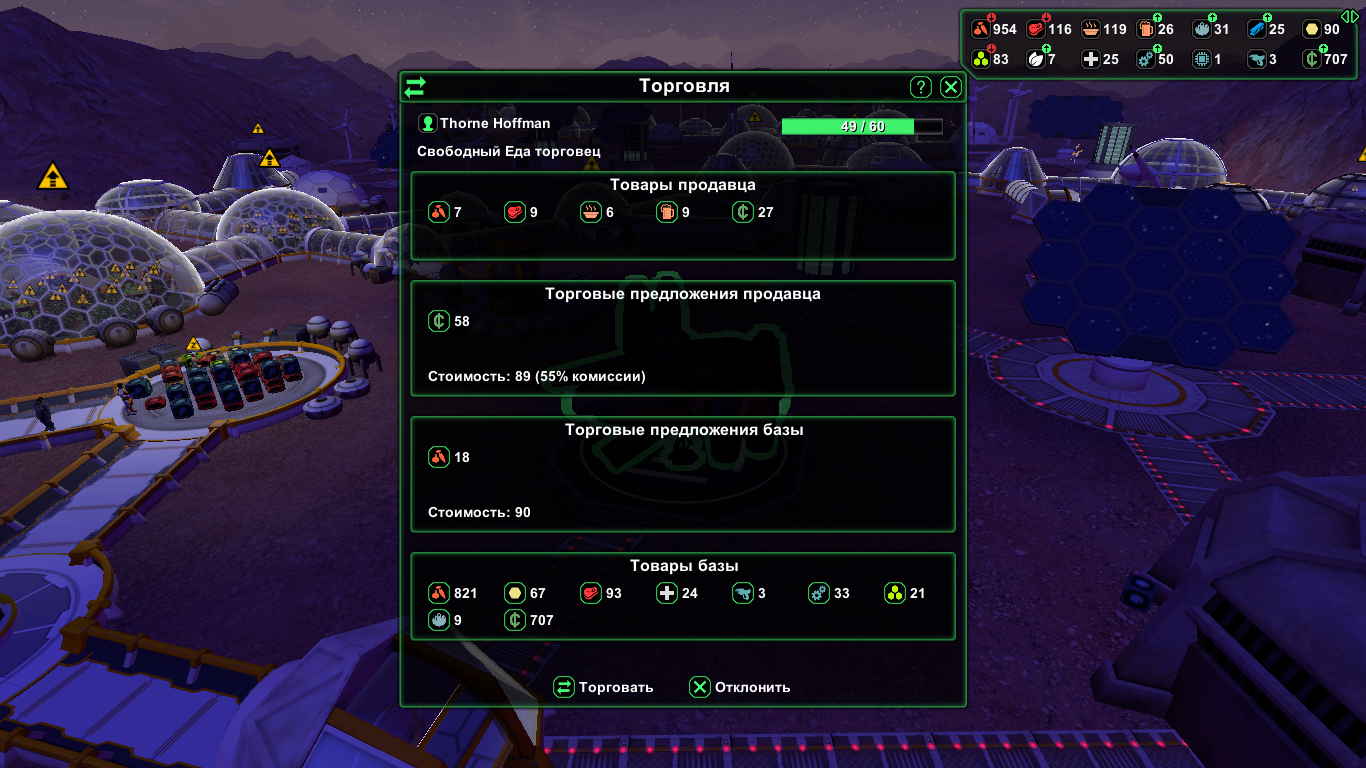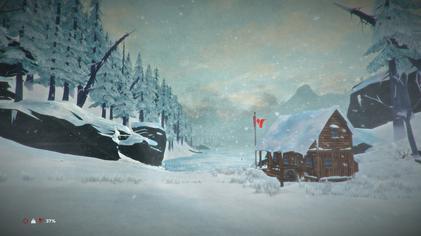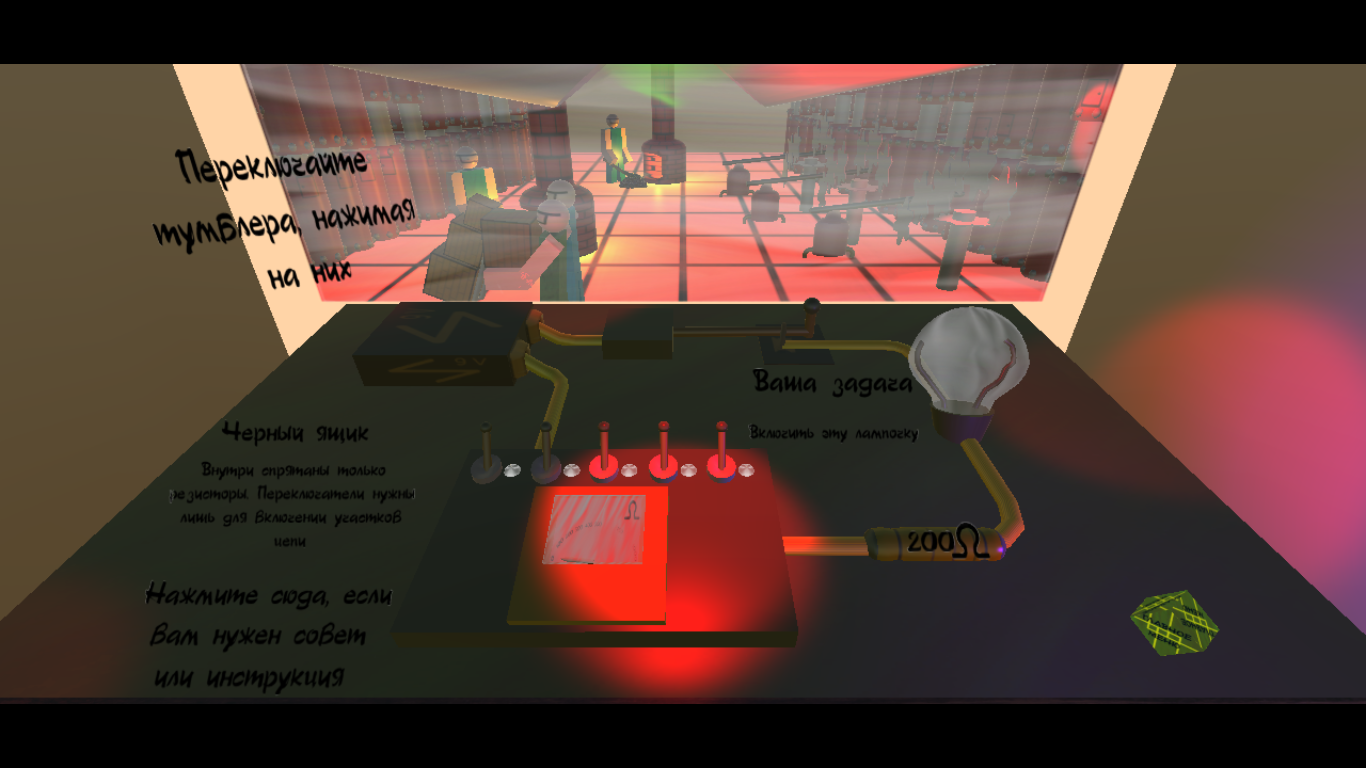Random non-randomness in games
What is randomness in games? It is no coincidence pledged events that occur with a certain probability and, possibly, under certain conditions. Why is this necessary? To add elements of randomness, add complexity or help the player. How does randomness affect the game? A huge number of ways! On random events in the games and will be discussed.

PS The theme, which is revealed in this post, is partially connected with another post about the lengthening of the gameplay
Take the economic component of the game Planetbase. This is a minor part of the mechanics, but due to an accidental (implicit) number of percent of the commission for the operation by each individual ship, the situation changes from case to case.
For example: at the beginning of the game, you urgently needed spare parts that cost $ 25. but you have no money. It will take some time to carry your goods, during which two medics could make medicines worth $ 25, but they will be busy loading. It is impossible to wait at the same time, since the ship will have time to fly away.
')
And here you offer for one spare 5 vegetables, which cost 5 each. Here comes the commission and you need 2.3 or even 4 boxes of vegetables more (depending on the ship’s commission, which is not known in advance).
And this already leads to the question: what are you willing to donate in order to get the details in one and a half, or even more, times faster? Or should we wait for the next ship? Or donate an expensive, but not necessary item now?
Such moments can create both additional difficulties (a high percentage of trade) and ease the game (a low percentage of operations with the items you need from the seller).

A merchant ship that takes half from the deal. But can the ship and with a large tax
To complicate the game come up with curses, snow / sandstorms, traps, and more. But if they constantly trap / walk the storm / the same curse during one game, then all this will not cause interest and pall. Here come to the aid of random trouble.
For example, the curse of amnesia, which does not allow you to memorize a card (the game The Binding of Isaac), forces you to memorize the card yourself. And this is only one curse that is in this game. Due to this, the game each time presents something new for the player.

Curse falls randomly (or does not fall) at each level
Wind and natural disasters in the game The Long Dark also act as difficulties for the players. Let part of the patterns of the natural phenomena of this game are visible, but, like the real nature, the nature in this game is unpredictable. Without a clock, the character determines the time by the sun and the moon. The weather is sometimes disorienting in time, and even makes it difficult to go out, forcing wild wind and cold.
Due to such accidents, the game turned out to be extremely atmospheric, from which it is worth taking an example.

Random weather events keep the world looking dull and empty.
Consider another case. You have an educational application where, when making a mistake, the level begins anew. What should ideally happen when making a mistake, so that the player is not seriously hurt?
A simpler solution is to create a special achievement, when making a certain number of mistakes. But we will go the other way, which is less obvious. Creation of special content (from screen saver, animation, jokes to cards, achievements and other things), which will appear only after errors.
When creating such a material, you need to remember that you can not drag the game onto it. Otherwise, your project will be about errors, and not about your original idea.

Error for too much voltage for a light bulb in Electricity
Attentive / curious readers noticed that specific examples were considered. However, I can assure you that in almost any game (except for stories and similar projects) there is a random degree to some extent.
And summing up the above, I emphasize the following:
PS The theme, which is revealed in this post, is partially connected with another post about the lengthening of the gameplay
▍ Randomness as a changeable beneficial factor.
Take the economic component of the game Planetbase. This is a minor part of the mechanics, but due to an accidental (implicit) number of percent of the commission for the operation by each individual ship, the situation changes from case to case.
For example: at the beginning of the game, you urgently needed spare parts that cost $ 25. but you have no money. It will take some time to carry your goods, during which two medics could make medicines worth $ 25, but they will be busy loading. It is impossible to wait at the same time, since the ship will have time to fly away.
')
And here you offer for one spare 5 vegetables, which cost 5 each. Here comes the commission and you need 2.3 or even 4 boxes of vegetables more (depending on the ship’s commission, which is not known in advance).
And this already leads to the question: what are you willing to donate in order to get the details in one and a half, or even more, times faster? Or should we wait for the next ship? Or donate an expensive, but not necessary item now?
Such moments can create both additional difficulties (a high percentage of trade) and ease the game (a low percentage of operations with the items you need from the seller).

A merchant ship that takes half from the deal. But can the ship and with a large tax
▍ Difficult accidents
To complicate the game come up with curses, snow / sandstorms, traps, and more. But if they constantly trap / walk the storm / the same curse during one game, then all this will not cause interest and pall. Here come to the aid of random trouble.
For example, the curse of amnesia, which does not allow you to memorize a card (the game The Binding of Isaac), forces you to memorize the card yourself. And this is only one curse that is in this game. Due to this, the game each time presents something new for the player.

Curse falls randomly (or does not fall) at each level
Wind and natural disasters in the game The Long Dark also act as difficulties for the players. Let part of the patterns of the natural phenomena of this game are visible, but, like the real nature, the nature in this game is unpredictable. Without a clock, the character determines the time by the sun and the moon. The weather is sometimes disorienting in time, and even makes it difficult to go out, forcing wild wind and cold.
Due to such accidents, the game turned out to be extremely atmospheric, from which it is worth taking an example.

Random weather events keep the world looking dull and empty.
Extracting Accidents
Consider another case. You have an educational application where, when making a mistake, the level begins anew. What should ideally happen when making a mistake, so that the player is not seriously hurt?
- Indicate and spend a little time to tell the player that he was wrong
- Nobody likes to be mistaken, because you need to come up with a red herring so that the player is not too upset
- We can not allow more interesting to make mistakes than to continue to move forward in the game.
A simpler solution is to create a special achievement, when making a certain number of mistakes. But we will go the other way, which is less obvious. Creation of special content (from screen saver, animation, jokes to cards, achievements and other things), which will appear only after errors.
When creating such a material, you need to remember that you can not drag the game onto it. Otherwise, your project will be about errors, and not about your original idea.

Error for too much voltage for a light bulb in Electricity
Non-random conclusion
Attentive / curious readers noticed that specific examples were considered. However, I can assure you that in almost any game (except for stories and similar projects) there is a random degree to some extent.
And summing up the above, I emphasize the following:
- Accidents can play both on the player’s hand and against him.
- “Bad” accidents can create additional difficulties, at the same time motivate the player
- Random events are applicable not only for greater involvement in the game, but also for closing black holes, such as indicating an error, loading a level, and so on.
Source: https://habr.com/ru/post/311494/
All Articles